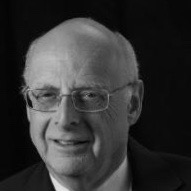Follow the money! One of the keys to studying a political campaign is to identify the “flow” of financial support for a candidate. Then, why is it that so much Jewish money remains on the sidelines for the 2012 Presidential Election? In 2008 candidates in both parties were receiving significantly more Jewish financial attention at this stage in the campaign, so what accounts for this different storyline? Tablet in a recent article reported that 55% of the key Republican Jewish donors had yet to make a political contribution, in comparison to 2008 where nearly 2/3rds of these players had committed their resources.
First of all, significant Jewish donor support is actually ‘in play” as singularly represented by Sheldon and Miriam Adelson, whose combined support for the Gingrich campaign involves to date, $10 million. Their donations, along with a number of other major players, is no longer directed to the candidate’s campaign but rather to the super PAC’s that have been established by each candidate. In the case of Speaker Gingrich, “Winning our Future” PAC was the beneficiary of these major dollars.
Second, major donors know that there are strategic times when to “invest” in one’s preferred candidate. “Early money” suggests that the donor wants the individual to know of his interest in and support of the candidate’s desire to test the field. “Late money” is designed to ensure that a candidate has the resources to finish, and hopefully win! Donors may not welcome significant public recognition associated with their support but clearly want the nominee to know that they are “invested” in his/her success and have demonstrated usually on various different occasions during the campaign cycle the nature of their commitment.
Third, some funders simply want the field to “shake out” before investing their resources. In some measure they want to see and hear more from the remaining candidates. While others hold back resources until their party’s frontrunner or nominee has been identified. Certain funders may be disappointed in their party’s selection or in policies being promoted by an incumbent and therefore delay their financial endorsement as a statement of their concern or even as a form of protest.
Fourth, PAC monies have been another venue by which Jewish groups, who share particular political interests around Israel, foreign policy and domestic concerns direct their collective support behind candidates who endorse their viewpoints. Federal multi-candidate PACs are limited in the amount of money they can contribute to candidate campaigns or other organizations:
- at most $5,000 per candidate per election. Elections such as primaries, general elections and special elections are counted separately.
- at most $15,000 per political party per year
An example of this type of campaign activity involves NORPAC, a non-partisan political action committee. This group is supports candidates and members of Congress, who “demonstrate a genuine commitment to the strength, security, and survival of Israel”.
How important is Jewish financial support for political campaigns? While it is difficult to quantify the sources of all contributions, there is significant evidence that Jews play a major role in underwriting candidates and supporting both political parties. Historically, this has been the case with Democrats where Jews over time have played a defining role. In more recent times, this pattern of high-end political fundraising among Jewish Republicans has clearly accelerated.
Steven F. Windmueller, Ph.D.
Rabbi Alfred Gottschalk Emeritus Professor
HUC-JIR
Los Angeles Campus
Did you enjoy this article?
You'll love our roundtable.
Editor's Picks



What Ever Happened to the LA Times?

Who Are the Jews On Joe Biden’s Cabinet?


No Labels: The Group Fighting for the Political Center
Latest Articles

Israel Strikes Deep Inside Iran

NSFW – A Poem for Parsha Metzora

Israel War Room Launches in Spanish

Modern Book Bans Echo Past Atrocities and Further Silence Marginalized Voices

The Power of the Passover Seder to Unite Jews












 More news and opinions than at a Shabbat dinner, right in your inbox.
More news and opinions than at a Shabbat dinner, right in your inbox.